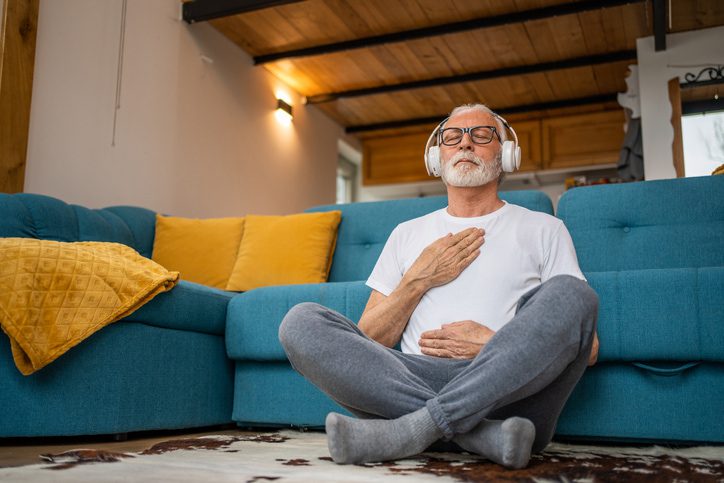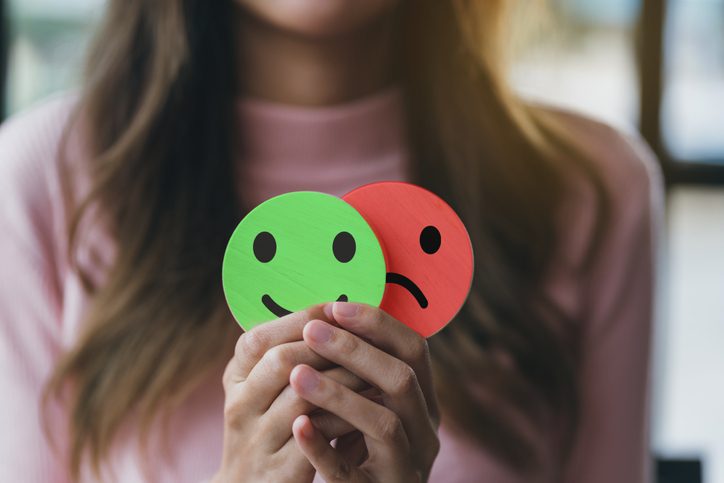Is It Anxiety or Stress?

Is It Anxiety or Stress?
October 27, 2022
Can’t Tell If You’re Just Stressed Or If You’re Dealing With Anxiety? Read On To Learn More!
Stress and anxiety are often used interchangeably in the English language; however, while both disorders present similar traits, they are slightly different and require separate treatment methods. While, at first glance, both conditions seem to share many signs and symptoms, there are some key differences to be aware of.
Here’s a breakdown of how stress and anxiety differ, which will allow you to accurately assess your situation and get proper help when you need it most!
How Stress And Anxiety Are Different
Stress is a natural response to a threatening situation, and while it is necessary to help us make quick decisions amid said circumstances, it can become a heavy burden to carry if it becomes recurring. On the other hand, anxiety is a feeling of unease that typically begins gradually and builds up over time. Stress reactions are often short-lived because they are quickly resolved once the stressful event is over; however, anxiety can lead to more severe conditions, such as panic attacks and interfere with day-to-day activities.
How To Recognize The Signs Of Stress
Stress is a normal, everyday reaction to life’s challenges. When stress becomes overwhelming and ongoing, it can affect your physical health, mental well-being and relationships with others. While we cannot eliminate all sources of stress in our lives, there are ways to manage stress so that it does not become overwhelming.
Some of the most recognizable signs of stress include but are not limited to;
- Physical symptoms:
- Difficulty breathing
- Aches and pains
- Muscle tension
- Digestive problems
- High blood pressure
- Chest pain or the feeling that your heart is racing
- Emotional symptoms:
- Irritability
- Panic attacks
- Sadness
- Anxiety
- Behavioral symptoms:
- Excessive alcohol consumption
- Gambling
- Drug use
- Eating disorders
- Smoking
- Compulsive behavior
Stress can also lead to depression, which includes feelings of sadness, loss of interest in activities once loved and an inability to enjoy life. When stress turns chronic, its symptoms can become debilitating.
How To Recognize The Signs Of Anxiety
Anxiety is often characterized by social isolation, feelings of hopelessness and difficulty concentrating. It’s important to know the difference between stress and anxiety in order to figure out which one you’re feeling and address it properly.
Anxiety can manifest itself in various ways, including:
- Panic disorder
- Post-Traumatic Stress Disorder (commonly known as PTSD)
- Phobias
- Social anxiety
- Generalized anxiety
- Obsessive-compulsive disorder
Furthermore, it is important to note that anxiety can result from chronic or prolonged stress. Therefore, knowing how to recognize the first signs of chronic stress or anxiety disorders could help you seek professional help promptly.
These are some of the most common symptoms of anxiety:
- Increased heart rate
- A sense of impending doom
- Sweating and trembling
- Frequently feeling weak or tired
- Trouble concentrating
- Hyperventilation
- Having trouble sleeping
- Avoiding events that trigger these symptoms
Consider Reaching Out For Help
You don’t have to face these challenges alone; if you are living with chronic stress or anxiety, please consider seeking help from a licensed professional to regain a sense of mental and physical wellness and find joy in daily life.
If you feel like life is taking a toll on your mental health and find yourself struggling, please contact the free and confidential suicide & crisis lifeline by dialing 988; someone will always be available to offer you support and understanding.
Begin Your Journey Towards Mental Wellness With Us!
The earliest you recognize acute stress or anxiety symptoms, the easier it will be for a professional to help you prevent developing an anxiety disorder. At Southern Connecticut Behavioral Health, we are committed to helping you and your loved ones achieve mental wellness and regain a sense of order and calm in your life.
If you live in or near New Haven, Bridgeport, or Milford, Connecticut, and are looking for an experienced and compassionate mental health team, please give us a call.
Recent News

Coping with Anxiety in the Workplace: Practical Strategies for a Stress-Free Day
April 24, 2025

Understanding Seasonal Affective Disorder (SAD): Tips for Coping During Winter
January 17, 2025

How Therapy Can Help Seniors Maintain Mental Health and Wellness
October 18, 2024

Understanding the Dynamics of Family Systems in Therapy
July 18, 2024

The Impact of Therapy on Personal Growth and Well-being
April 18, 2024

The Power of Mindfulness in Reducing Stress
January 17, 2024

